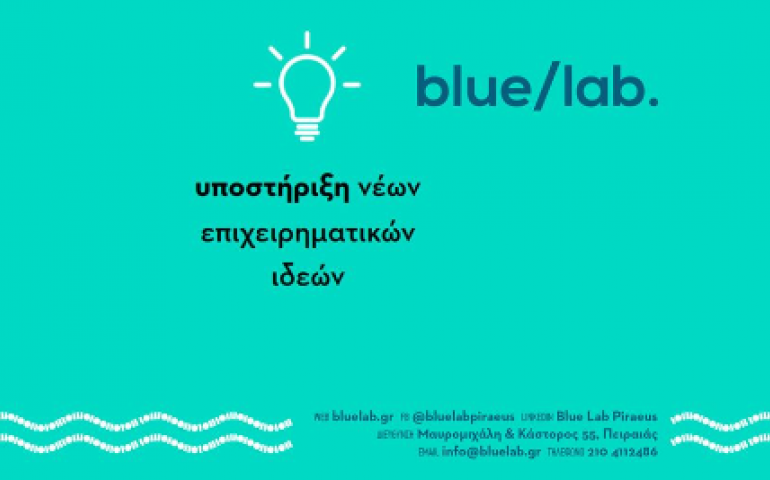Based on Barnsley’s good practice, Piraeus launched its own ‘Blue Lab’– the first Blue Economy Innovation Center in Greece. Blue Lab is one of the few centres in Greece that has a dedicated ‘makerspace’ for start-ups to focus on creating functional prototypes to develop their main ideas.
The Municipality of Piraeus, part of the Athens urban area, urgently needed to support recovery after the 2008 global financial crisis. Despite being a major freight and passenger port, the number of businesses and jobs were falling in all sectors, with several large shipping companies relocating elsewhere.
Piraeus developed an integrated ‘Blue Growth Strategy’ (2018-2024) aiming to develop innovation and higher value jobs in sustainable businesses related to the sea, coasts and maritime heritage. Goals included attracting international technology businesses, encouraging existing businesses to adopt modern technologies, and helping young people improve their digital skills.
The municipality joined the Tech Revolution network in particular to enhance the digital aspects of their Blue Growth Strategy.
Based on Barnsley’s good practice, Piraeus launched its own ‘Blue Lab’– the first Blue Economy Innovation Center in Greece. The municipality worked with a private contractor to found Blue Lab in a modern facility near the harbour, that welcomes young people and early-stage businesses who want to develop technological and business skills through a range of services (seminars, co-working space, advanced technology). Blue Lab is one of the few centres in Greece that has a dedicated ‘makerspace’ for start-ups to focus on creating functional prototypes to develop their main ideas. A variety of industrial equipment supports the activities.
Before the end of its first year, Piraeus’ Blue Lab had welcomed hundreds of visitors, and provided 1080 hours of business mentoring, 608 hours of tech and entrepreneurship training, multiple workshops and networking events, sparking more than 28 prototyping projects and 27 entrepreneurship ideas.
University students and professors also linked up with Blue Lab. When COVID-19 struck, they used the facilities to produce prototype technology solutions that could benefit the community – including a ‘Blue Air’ concept to sterilise air using ultraviolet radiation, and Personal Protective Equipment such as surgical masks.
Blue Lab and Piraeus’s activities seek to improve the social and economic wellbeing of citizens through the creation of more and better jobs and businesses. The infrastructure also supports the development of skills and opportunities increasingly needed for the development of innovative solutions for addressing the current issues at stake in the blue economy. Blue economy is a strategic priority of Piraeus and it offers an integrative framework for sustainable urban development as it constitutes a socio-economic opportunity due to the city’s unique maritime position.
A crucial step in transferring the good practice was engaging the local community, educational institutions and business representatives and private-sector partners as part of an URBACT Local Group (ULG). Cooperating with local stakeholders, the team decided to provide state-of-the art technologies - such as 3D designing/printing and microelectronic systems – to promote innovation and to develop digital adoption programmes for local businesses.
Crucially, the ULG approach achieved wholehearted engagement – including with enthusiastic senior city decision-makers. This sparked strong new partnerships. Schools in particular have been keen to engage with Blue Lab, for example through field visits.
Tech Revolution has boosted Piraeus’ strategic vision for the local Blue Economy and, starting this June, the municipality is going to offer business start-up, scale-up and innovation support as core services, as in Barnsley.
Cooperation with businesses has also led to plans for a second, bigger innovation centre as a springboard for entrepreneurial activity. Piraeus’ plans include a larger co-working space, training facilities to upskill the workforce and investment in more advanced technologies.
The hope is that this energy will feed into a broader receptiveness to digital adoption and subsequent development of higher-value jobs in the local economy.
Piraeus’ learning journey was supported by exchanges with Tech Revolution city partners – including at a transnational meeting for all network partners in Piraeus - and reinforced by visits from Barnsley and the URBACT Lead Expert. These exchanges helped identify the most important lessons and inspiration for their own city, in particular around the centre’s economic viability, promising digital technologies, new ways to engage local stakeholders, and how to promote collaboration and start-up formation.

